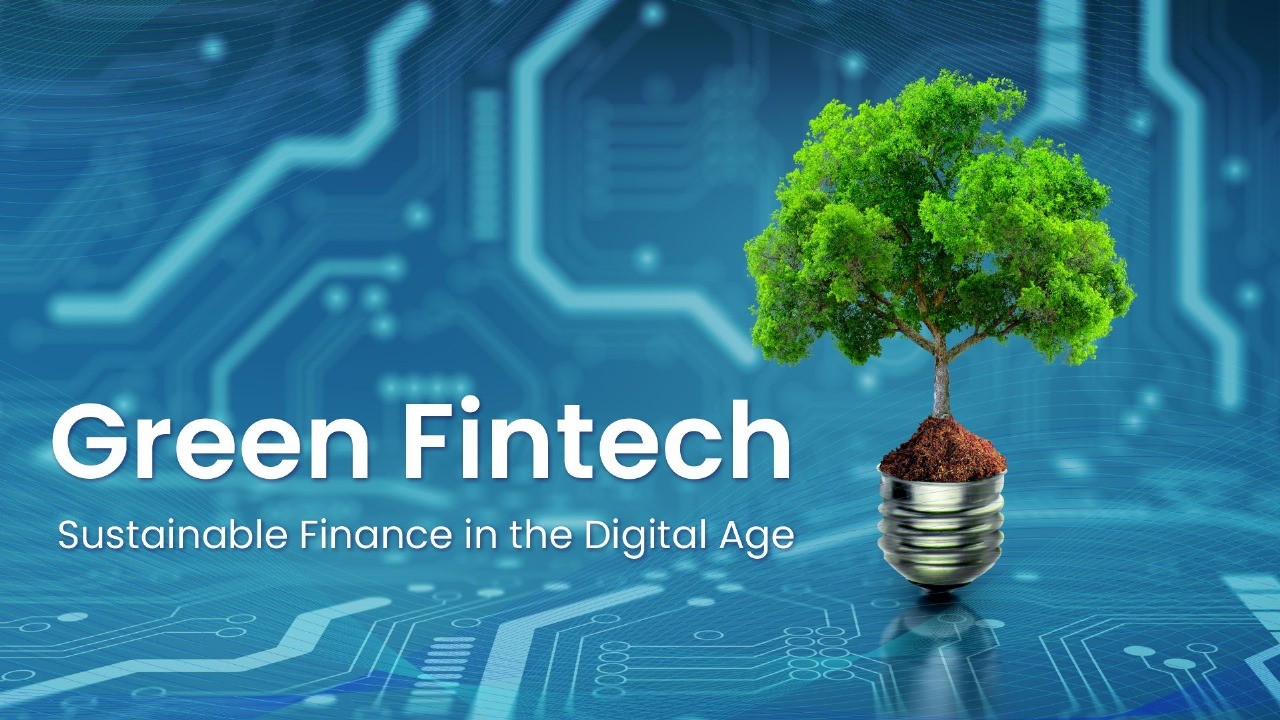
Green Fintech: Sustainable Finance in the Digital Age
Green fintech, a fusion of financial technology (fintech) and sustainable practices, is revolutionizing the financial sector by driving economic growth while simultaneously addressing critical environmental challenges. This innovative sector leverages cutting-edge technologies such as blockchain, artificial intelligence (AI), and big data to create financial solutions that promote environmental sustainability, reduce carbon footprints, and encourage investments in green projects.
?
The Emergence of Green Fintech
?
Green fintech has emerged in response to growing environmental concerns and the urgent need for sustainable development. Climate change, deforestation, and pollution are just a few of the challenges that have prompted a global shift towards greener practices across industries. The financial sector, traditionally seen as neutral in terms of its direct environmental impact, has recognized its powerful role in shaping a sustainable future. By integrating green practices, fintech companies are not only contributing to the environmental cause but also tapping into a market of eco-conscious consumers and investors.
?
Technologies Driving Green Fintech
?
At the heart of green fintech are several key technologies that enable the development of sustainable financial products and services:
?
1. Blockchain: Known for its transparency and security, blockchain technology facilitates the creation of decentralized platforms for green investments, carbon trading, and the tracking of the environmental impact of various projects. For instance, blockchain can be used to verify and monitor the carbon offsetting process, ensuring the integrity of transactions in the carbon credit market.
?
2. Artificial Intelligence and Machine Learning: AI and machine learning algorithms analyze vast amounts of data to optimize energy use, predict environmental risks, and identify sustainable investment opportunities. These technologies can help financial institutions and investors make more informed decisions that align with environmental sustainability goals.
?
3. Big Data: The use of big data in green fintech involves collecting and analyzing extensive datasets related to environmental, social, and governance (ESG) factors. This analysis can provide insights into the sustainability performance of companies, guiding investors towards more responsible investment choices.
领英推荐
?
Impact of Green Fintech
?
The impact of green fintech is far-reaching, spanning various aspects of the financial and environmental landscapes:
§? Sustainable Investing: Green fintech platforms enable investors to channel their funds into sustainable projects and companies that prioritize environmental protection. This not only drives the growth of green businesses but also encourages traditional companies to adopt more sustainable practices to attract investment.
§? Carbon Trading and Offsetting: Digital platforms facilitated by green fintech allow for the efficient trading of carbon credits, enabling companies to offset their carbon emissions by investing in environmental projects. This market mechanism plays a crucial role in reducing global carbon emissions.
§? Enhanced Transparency: Through the use of blockchain and other technologies, green fintech increases the transparency of environmental impact reporting and investment processes. This helps build trust among investors, companies, and the public, fostering a culture of accountability and environmental responsibility.
§? Financial Inclusion: Green fintech solutions often focus on providing access to green finance for underserved communities and small to medium-sized enterprises (SMEs) that are implementing sustainable practices. This not only supports environmental goals but also promotes economic growth and poverty reduction.
?
Challenges and Future Prospects
?
Despite its potential, green fintech faces challenges such as regulatory hurdles, the need for standardized ESG metrics, and the risk of greenwashing. However, with increasing regulatory support and advancements in technology, the sector is poised for significant growth.
The future of green fintech lies in its ability to innovate continuously, fostering the development of new financial products and services that support the transition to a low-carbon, sustainable economy. As consumer awareness and demand for sustainable options grow, green fintech will play a pivotal role in reshaping the financial landscape to address the pressing environmental challenges of our time.
Conclusion:
Green fintech represents a promising intersection of technology and sustainability, offering a path towards a greener, more inclusive financial sector. By leveraging advanced technologies to drive environmental and economic benefits, green fintech is not just a trend but a fundamental shift in how we perceive and interact with the financial world. As this sector evolves, it holds the potential to make significant contributions to global sustainability efforts, demonstrating that financial innovation can indeed go hand in hand with environmental stewardship.
Senior Fintech Specialist at FSCA South Africa
4 个月Keith Sabilika, FMVA?
Thanks for sharing. You may also check our report on 'Green Fintech Market - Global Forecasts to 2029' at: https://www.globalmarketestimates.com/market-report/green-fintech-market-4461
Business Development Executive @ Targeticon | MBA
8 个月if we adopt the technologies you mentioned with caution, it will create a green impact on our environment and We can make an impact together.